Bidule 170 owners, like me, wondering if Gunny will be producing these discs for sale? After using aluminum for 2 years, I would like to upgrade to carbon.
Tim
Announcement
Collapse
No announcement yet.
TopModel Bidule 170 ~ build thread by JimD
Collapse
X
-
After three full seasons of towing with our DA-150 powered Bidule 170, we are addicted to the Aviation Concepts Hydraulic Disc Brakes. Numerous refinements have been made and mostly they work very well. As for wear and maintenance, Gunny's aftermarket brake pads have proven to be much better than the stock pads when using the aluminum rotor discs, but they do wear fairly quickly. Pads need to be shimmed after about 20 hours and replaced after about 40 hours. Still, that represents a lot of tow circuits.
The original design had these one piece aluminum discs.
Later, Gunny designed an up graded two part aluminum disc that proved to stay centered on the hex much better and solved the excessive wear on the hex. Len and Scot did some experimentation using the carbon fiber discs that the land based brake systems use and they seemed to wear better and have better stopping power.
With this in mind, I had Gunny make a set of carbon fiber discs in the two piece design just like the aluminum ones. Here they are!
These will be installed and ready for the Salem Aerotow event, so we shall see how this innovation works out this season.
Leave a comment:
-
A123 Battery Pack Update:
After many more hours of operation in both Bidule #1 and Bidule #2, we noted that the nose gear servo battery usage was only around 200 mAh per hour of flight time. Considering this, we elected to eliminate the steering servo battery and just plug the S9020 steering servo into the receiver. Servos loads for Receiver #1 and Receiver #2 were balanced so that each A123 flight pack was being used up at the same discharge rate. This also eliminated a switch and the unnecessary extra wiring.
Now, the three A123 packs in use (two receiver and one ignition) are easily accessible and can be changed out quickly for freshly charged packs or, they can be charged in the plane without the need to remove the hatch.
With three sets of batteries and three CellPro Multi4 chargers, nearly continuous operation can be maintained.
Leave a comment:
-
In my case, I am using twin 2,500 mAh 6.6v A123 batteries for the receivers and an additional one for the S9020 steering servo. Counting the battery consumption for the three packs, my usage is right in line with what Len reports...but since my total capacity is about half of his, I recharge after 2-1/2 hours of flight time. The recharge only takes 15 minutes at most with the A123 packs.
Leave a comment:
-
Hi Phil.
I love the products from Hansen, they have nice quality items.
Regarding the nose wheel system, it's really not an issue and adding another layer of complication to it is probably not worth it. Depending on you're personal choice for batteries, you can get many, many hrs of towing before having to think about the batteries.
I use twin 5000mah lipo packs for the receiver and was using a 4500 Nihi for the ignition, but have switched that to a lipo also with the help of a Sparkswitch regulator from Power box.
Again, for simplicity the steering does not need its own battery in this set up. With the twin 5000 packs, I get at least 5 hrs before I change them out, and at that point they have used only 50% of the packs. The low power consumption on may be due to the Stewart servo saver system we use on the nose gear.
Hope this helps.
Len
Leave a comment:
-
Jim, at the AMA East Expo this month, I had the opportunity to talk with Chrstopher Hansen of Hansen Hobbies about this same issue. His company makes a small gadget that operaters as a switch, several of them actually.Originally posted by JimD View PostPower does not come without a penalty. We noticed that the rate of battery consumption increased considerably. What to do?
As with giant scale sailplane retract servos, we decided to driving this servo with a separate battery. This can be accomplished by making a simple wiring harness that uses the signal voltage and ground wire (yellow/black) from the receiver channel being used combined with the positive and ground wire (red/black) from the auxiliary battery (place a switch inline between this plug and the auxiliary battery). The S9020 steering servo then plugs into the 3-lead connector.
With this setup, the receiver battery drives the electronics in the servo and the auxiliary battery drives the motor in the servo.
Using acspare tx channel the switch could be used to turn on the nose steering servo. Christopher believed the s9020 servo would be controlled fine by his Nano sized onboard switch.
another thought I had was that this switch would help with one other issue regarding the nosewheel, which is the very large moment applied to the servo by the single wheel bogey arm. If the steering servo is off, as in freewheeling, at the split second the nose wheel hits dirt, the initial sideway force (of rudder input) is lessened and on top of that the servo will not be greeting the jolt load of the wheel hitting the ground with clenched-fist holding power. Ie, the gears are out of harms way for that moment.
this supposes of course that the aircraft is -flying- when the wheels touch the earth.
spektrum claims the s9020 is fade proof. Yet if the servo duty cycle is limited to time on the ground, that would further improve its longevity, seems to me.
phil
Leave a comment:
-
Jim, is this a new build or are you just doing some winter tune up's to an existing Bidule?
Tim
Leave a comment:
-
Extension cables for rudders and elevators installed and connected to receivers:
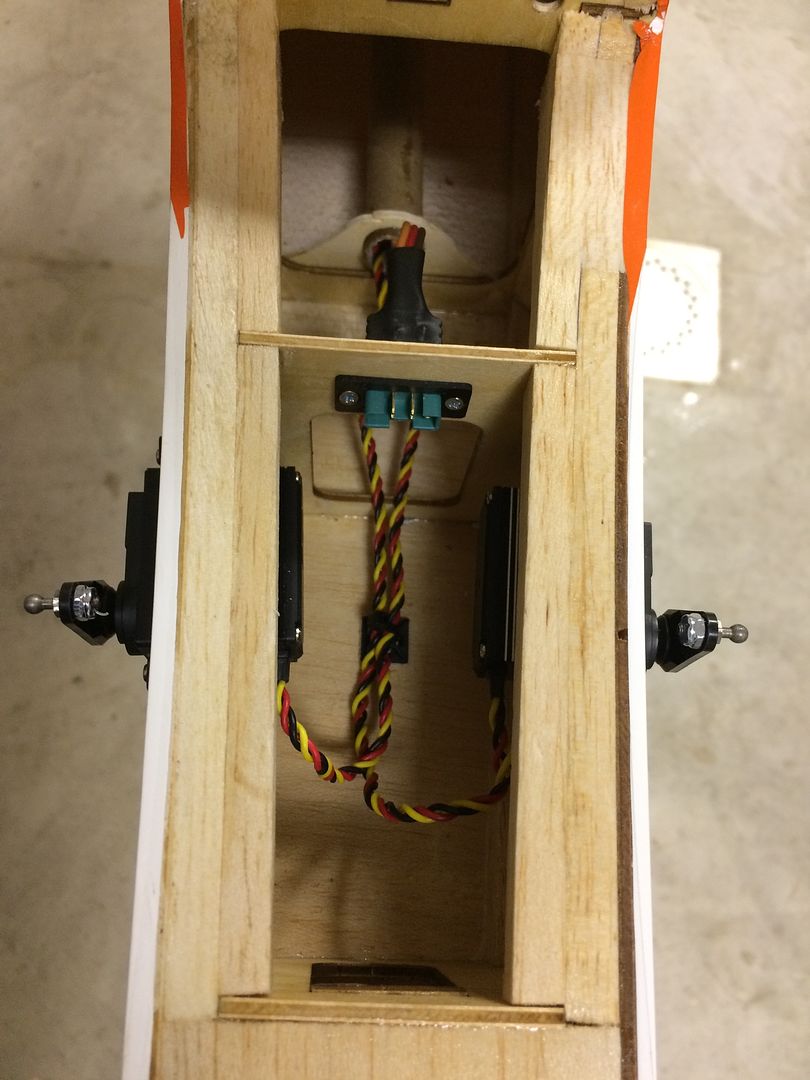
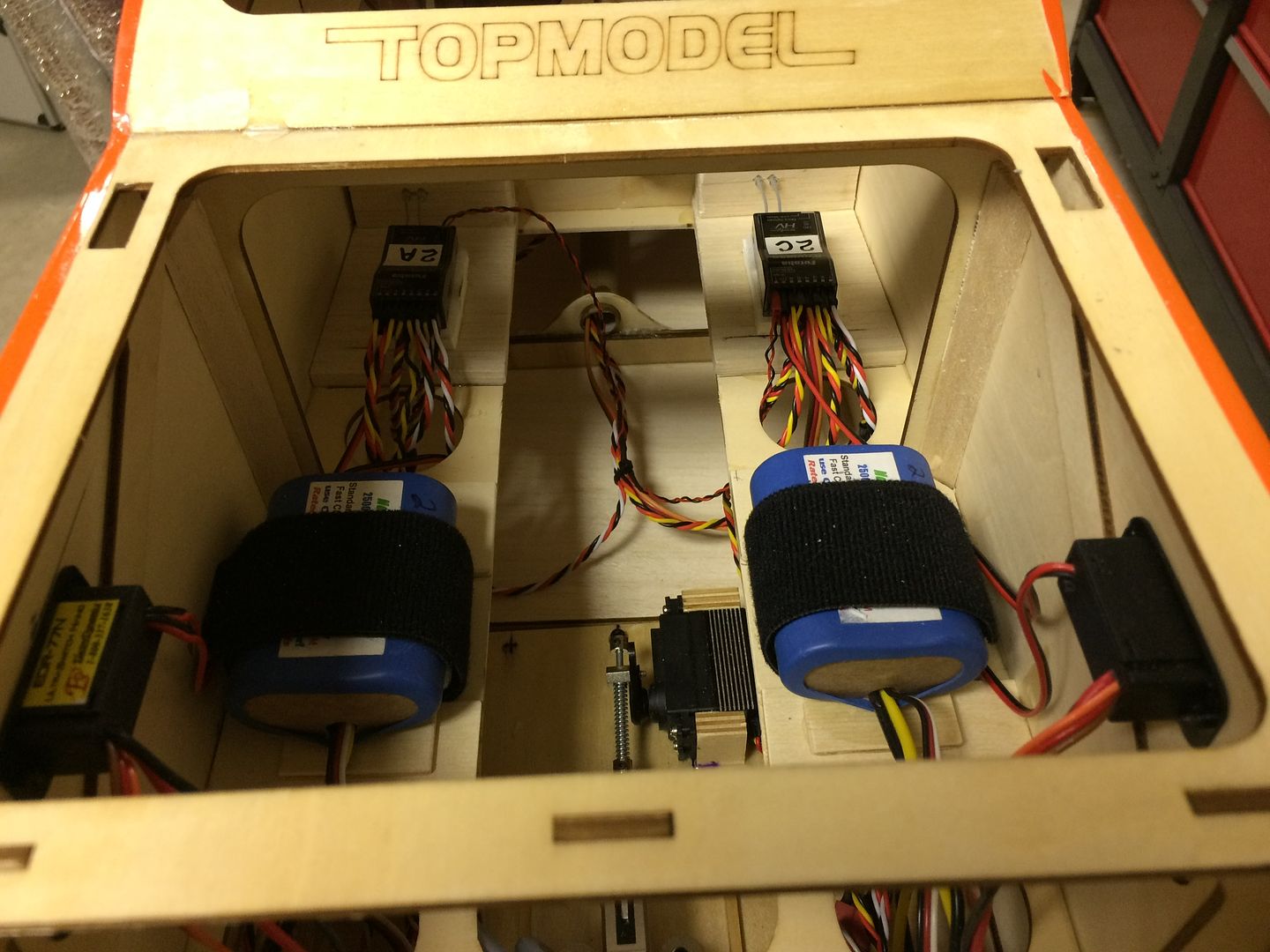
Disc brake hubs installed on 8" DuBro main wheels.
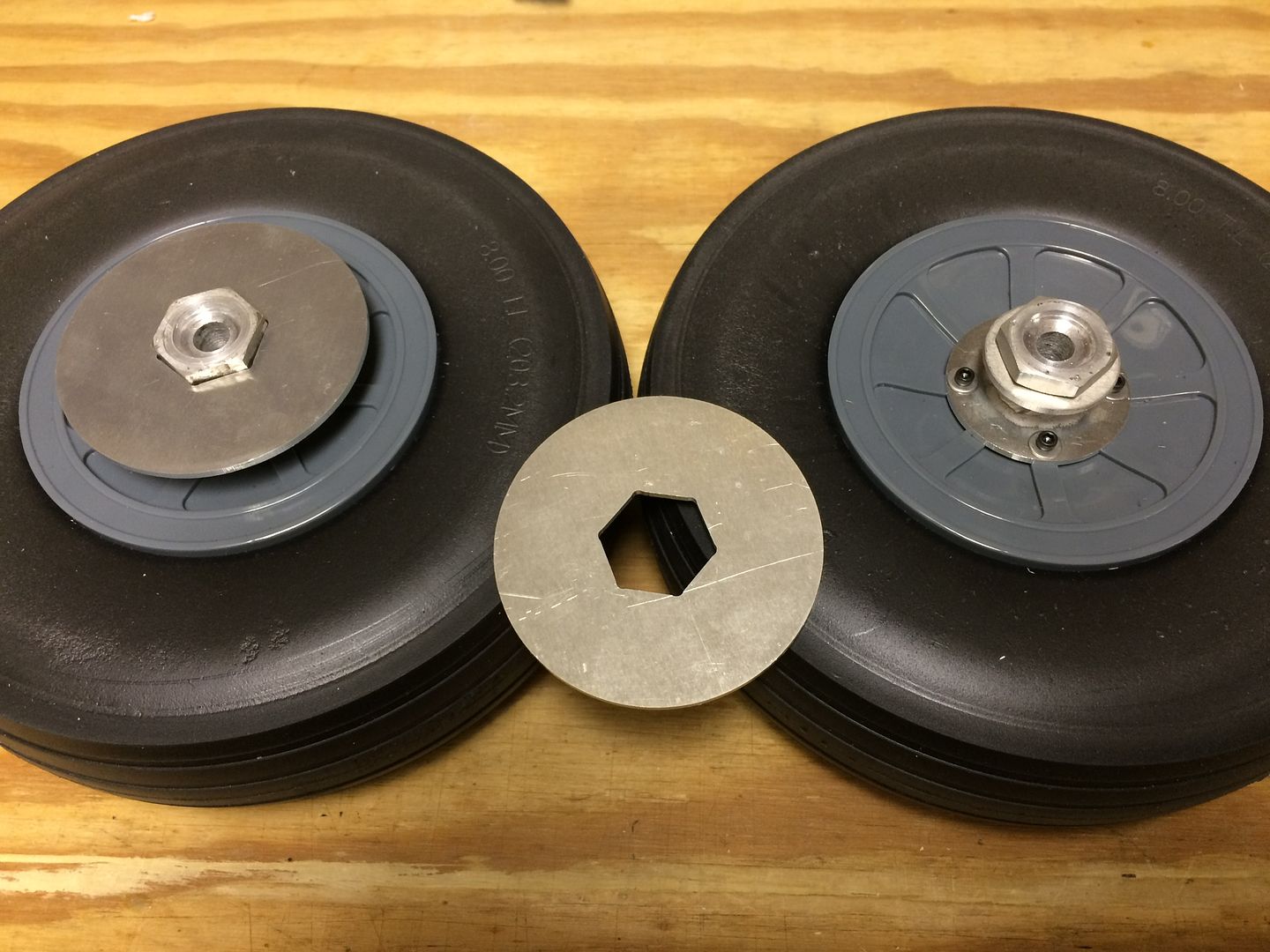
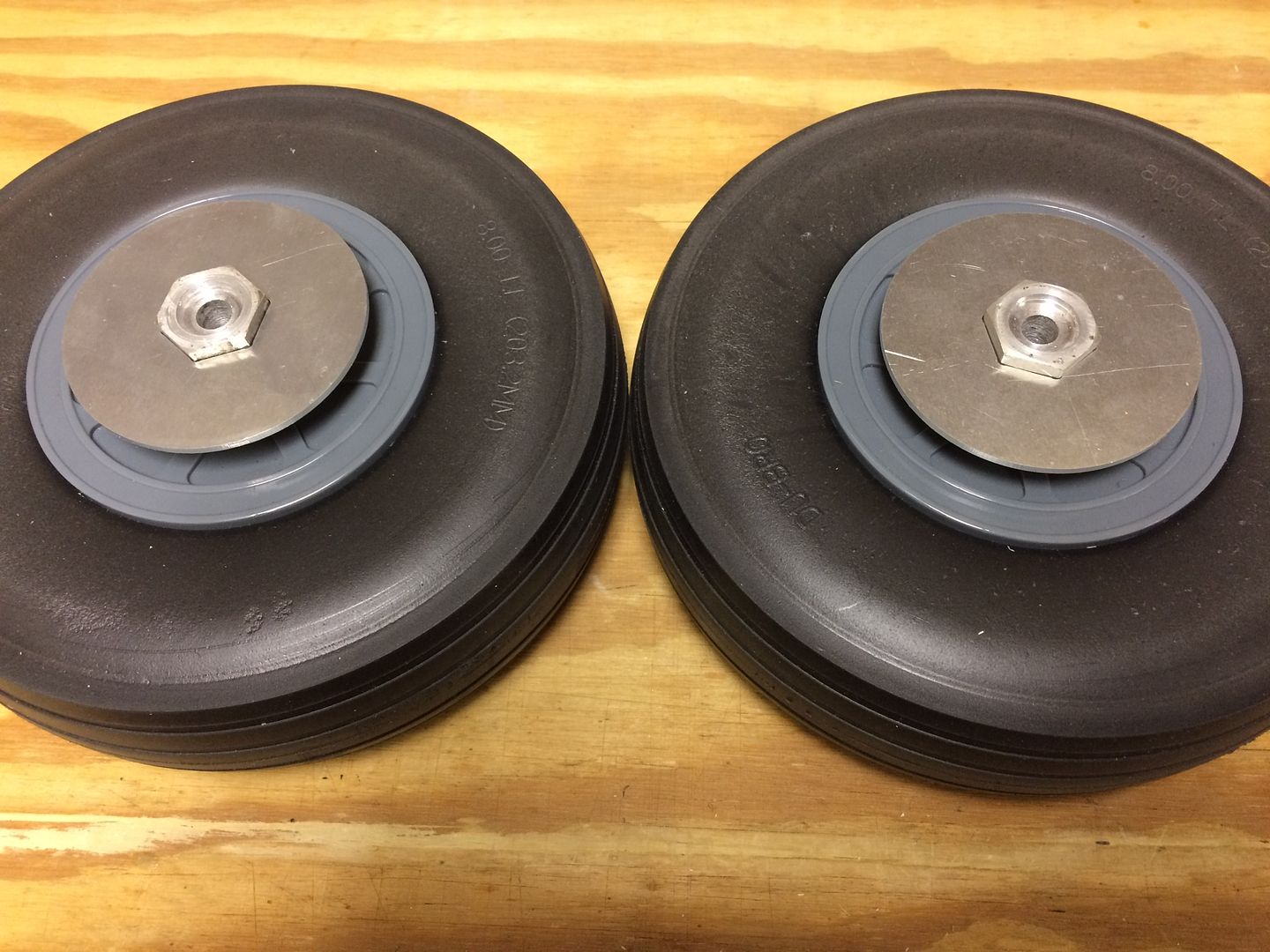
- Likes 1
Leave a comment:
-
We used Sullivan 4-40 Aluminum Ball Connectors and Hangar 9 Titanium Pro-Links 4-40 x 5" to make the elevator push-rods. The Pro-Links have regular threads on one end and reverse threads on the other. The regular threads go into the Sullivan Connector. We cut about 1/8" off of the regular threaded end so that the threads go completely into the connector leaving no threads showing. The Sullivan connectors were installed with Loctite so these Pro-Link push-rods cannot be adjusted in the normal manner.
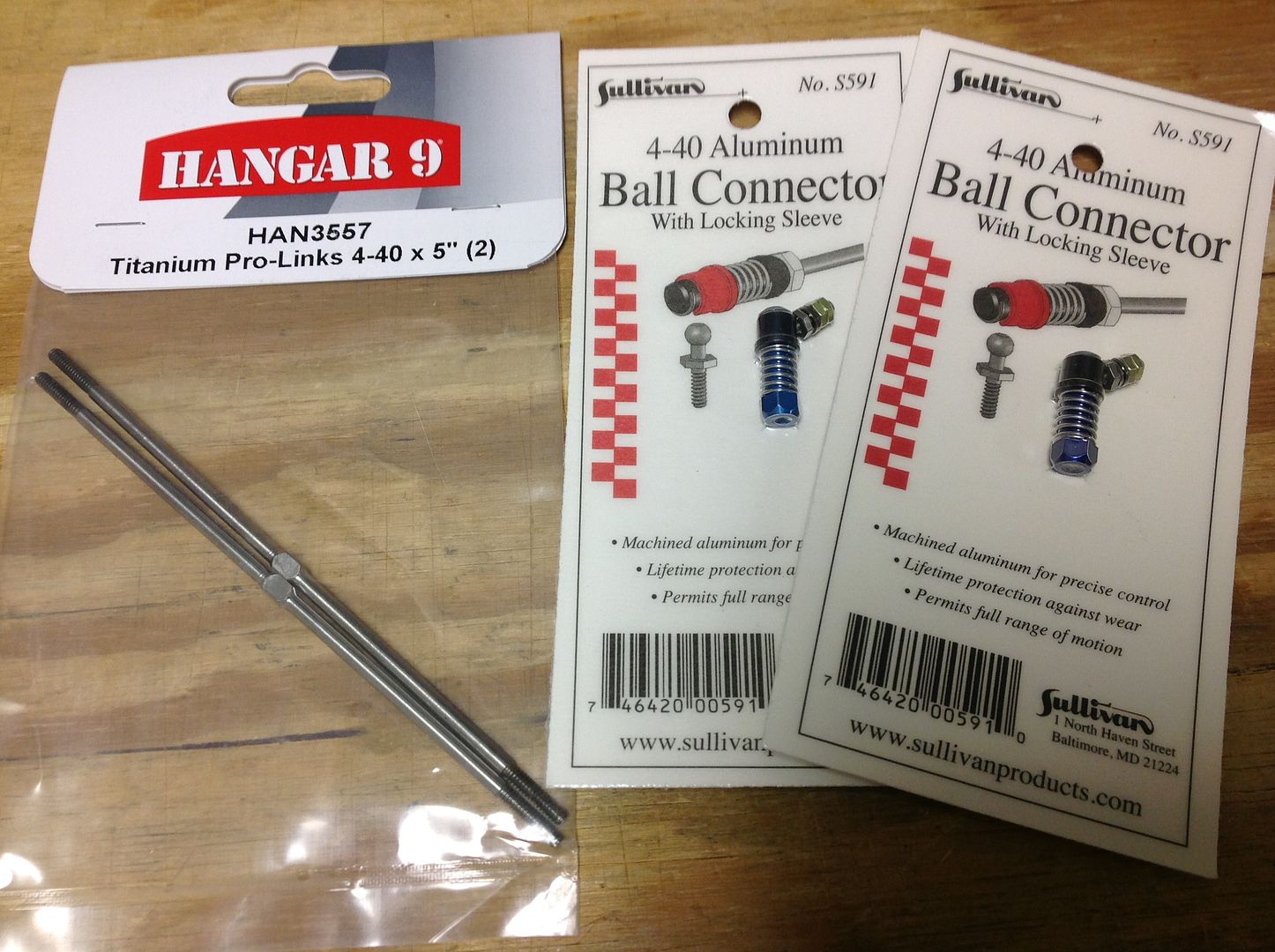
Threads on the control surface end are screwed almost all the way in to make the push-rod the perfect length. The Sullivan Ball Connectors allow fairly easy connection and removal of the stabilizer/fin unit.
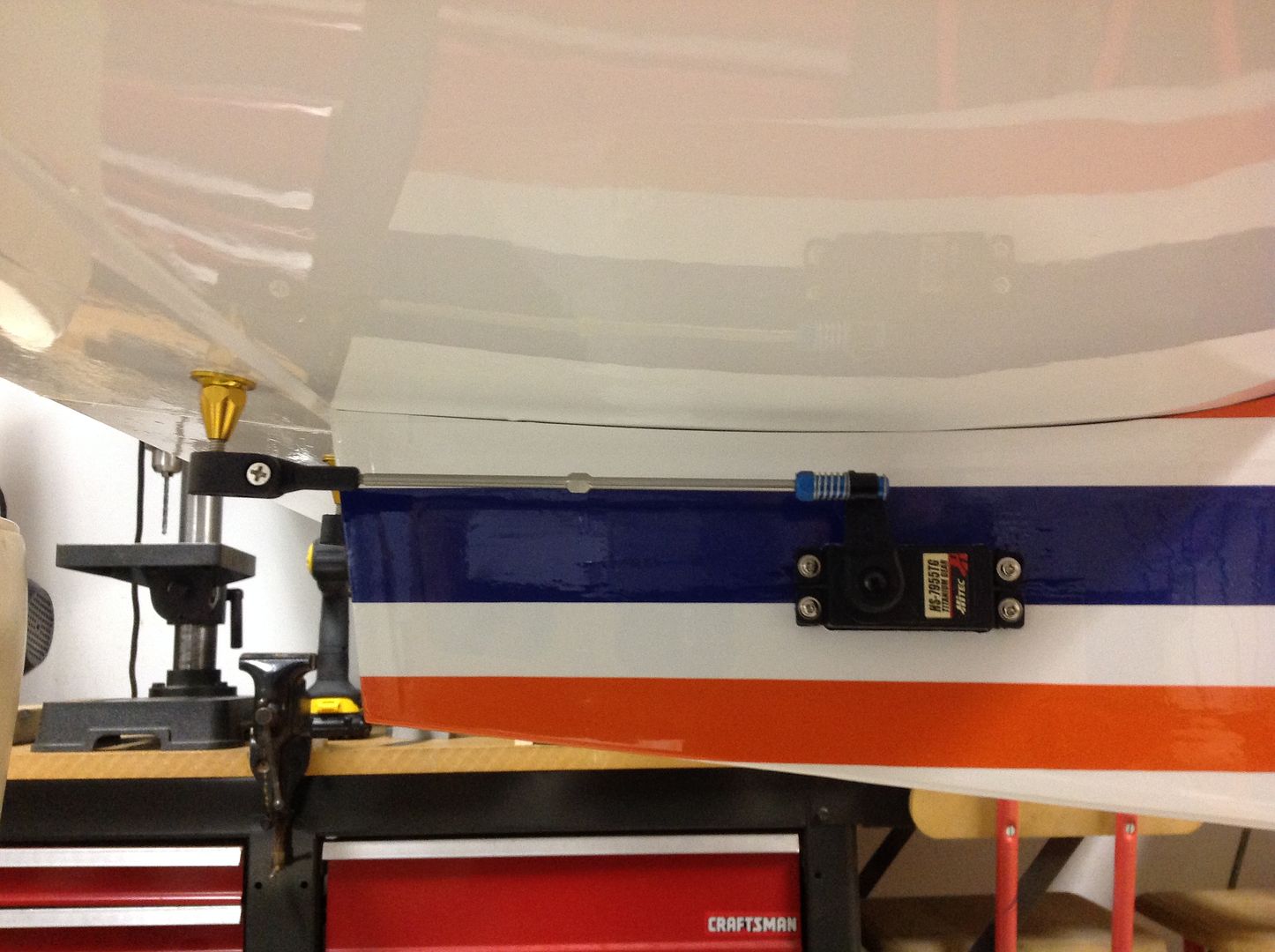
Leave a comment:

Leave a comment: